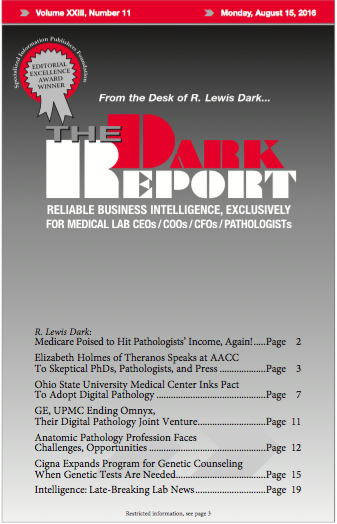CEO SUMMARY: For three years, Cigna has required genetic counseling for members seeking genetic testing for hereditary breast, ovarian, and colorectal cancer, and for a particular heart condition. Such counseling increased member satisfaction, causing Cigna to expand the program. It now requires genetic counseling with an independent board-certified genetics specialist for members considering whole exome …
Cigna Expands Program For Genetic Counseling When Genetic Tests Are Needed Read More »
To access this post, you must purchase The Dark Report.


